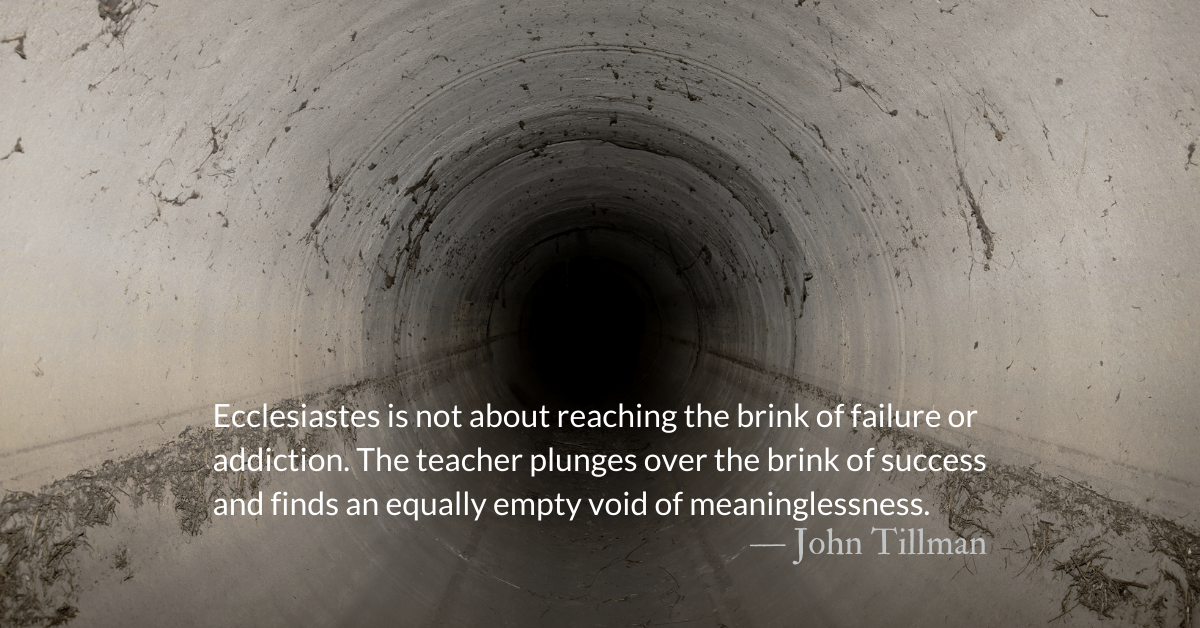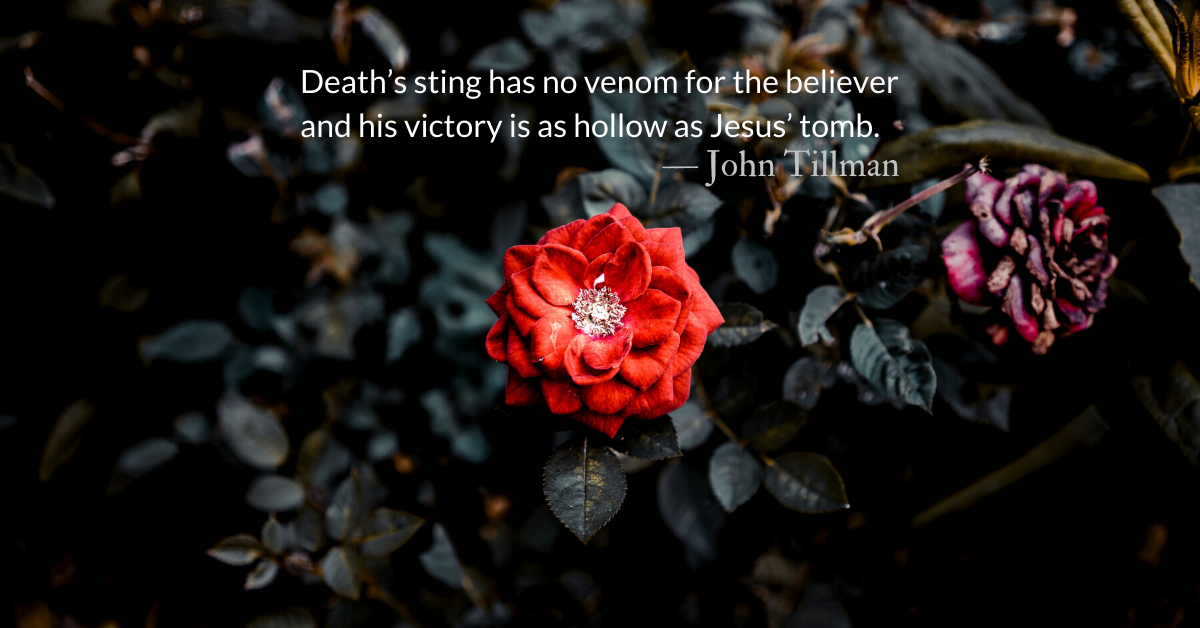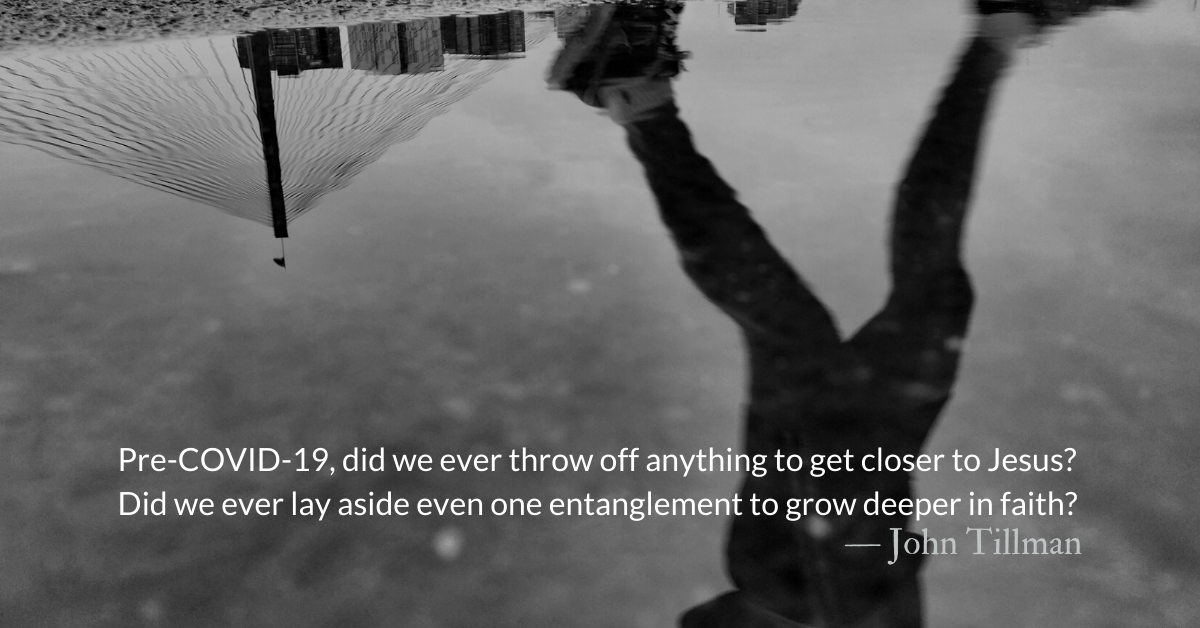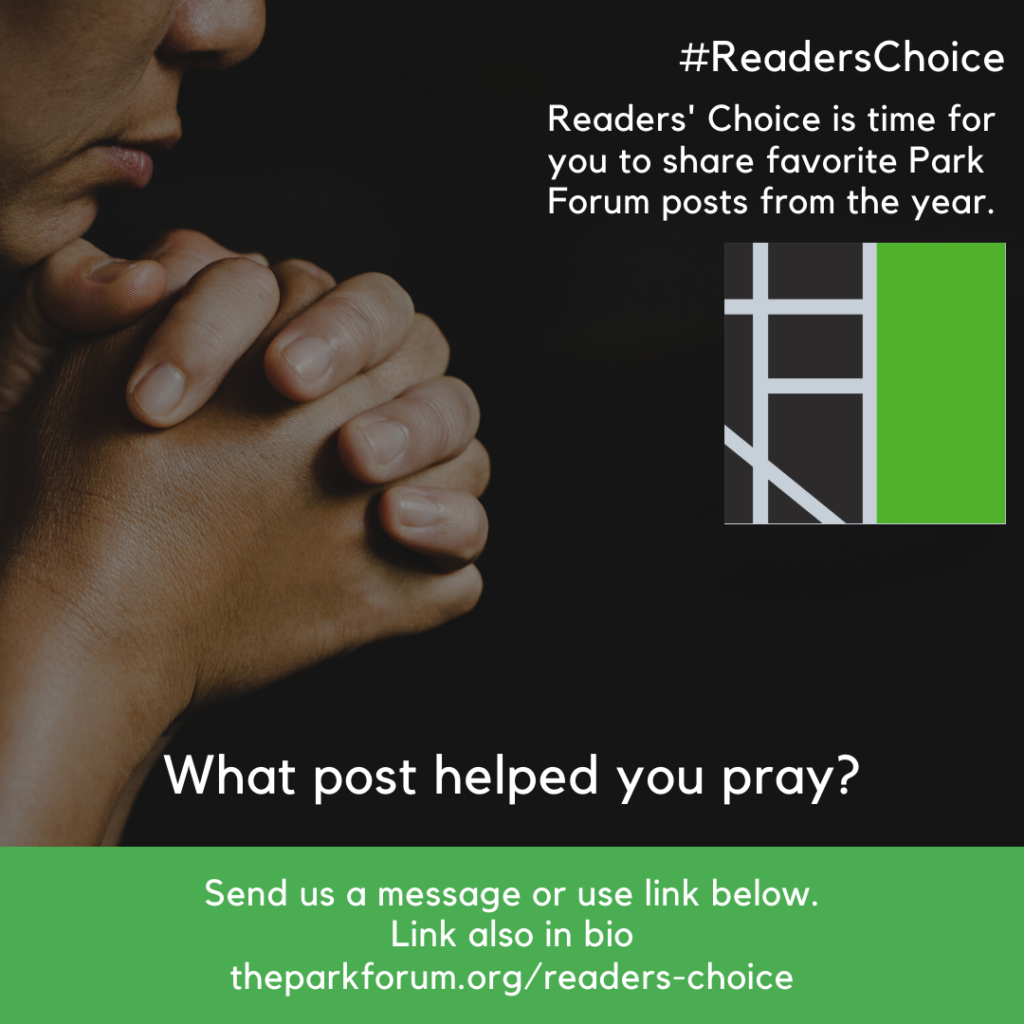Scripture Focus: Ecclesiastes 2.10-11, 16-18
10 I denied myself nothing my eyes desired;
I refused my heart no pleasure.
My heart took delight in all my labor,
and this was the reward for all my toil.
11 Yet when I surveyed all that my hands had done
and what I had toiled to achieve,
everything was meaningless, a chasing after the wind;
nothing was gained under the sun.
16 I said to myself, “Look, I have increased in wisdom more than anyone who has ruled over Jerusalem before me; I have experienced much of wisdom and knowledge.” 17 Then I applied myself to the understanding of wisdom, and also of madness and folly, but I learned that this, too, is a chasing after the wind.
18 For with much wisdom comes much sorrow;
the more knowledge, the more grief.
Reflection: Over the Brink of Success
By John Tillman
Proverbs gives us expectations about wisdom and its outcomes. The wise prosper, find success, and are satisfied. Then Ecclesiastes dumps cold water on our optimism.
People love stories from the brink. We’ve all heard testimonies from those who approached the brink through drug use, alcoholism, sex, greed, or violence. They reached the edge, saw emptiness, and turned back. Ecclesiastes feels like one of those stories. However, Ecclesiastes is not about reaching the brink of failure or addiction. The teacher plunges over the brink of success and finds an equally empty void of meaninglessness.
“All is meaningless,” says the teacher. “Trust me. You think wealth will satisfy you? Doing what you love? A great job? Impressive accomplishments? Unlimited sex? Sorry, folks. I did it all and it’s all meaningless.”
The word translated “meaningless” is difficult. Many Bible translations render it as “vanity.” It means something transitory or unsatisfactory. It’s figurative meaning is like vapor or breath. Ecclesiastes clarifies, saying it is like “chasing after the wind.” Imagine grabbing a handful of smoke. The smell of it might still be on your hands and clothes, but there is nothing substantial there.
How can Solomon, the teacher of the book, say “all is meaningless”? Isn’t one of the strengths of our faith that it gives us meaning? Is Solomon jaded and dissatisfied? Did he misuse the unique wisdom God gave to him?
The teacher sees the world as it is, up close, and to excess. Whether sex, wealth, or the wisdom (and foolish idolatry) of other cultures, Solomon drank deeply of it all. It was, at least partially, a lived-out experiment.
This experiment comes at a cost of grief. Humans bit the fruit in the garden because it was “useful for gaining knowledge.” (Genesis 3.6) Solomon takes a big bite of the world’s so-called knowledge, as do we all.
It is uncomfortable to hear the success we long for is pointless, but it’s healthy. We can’t succeed our way to joy, pleasure ourselves into love, or spend our way into significance. Joy, love, and significance come to those who pursue the treasure of our gracious God, not the trophies of a ruthless world. (Matthew 13.44)
The wisdom of Proverbs and the wisdom of Ecclesiastes are not in conflict. Both call us to trust not in attainment of success but in attuning our lives to God’s voice and our actions his purpose.
Divine Hours Prayer: The Greeting
How great is your goodness, O Lord! Which you have laid up for those who fear you; which you have done in the sight of all. — Psalm 31.19
– From The Divine Hours: Prayers for Springtime by Phyllis Tickle.
Today’s Readings
Ecclesiastes 2 (Listen – 4:03)
Psalm 104 (Listen – 3:37)
Read more about Solomon’s Folly
Most people seek to retest Solomon’s findings. “Sure, sure, wealth and pleasure are meaningless,” we say, “but let me try.”
Read more about The Identical Nature of Greed and Lust
Lust and greed are the exact same sin. One is concerned with material goods and one with flesh.













